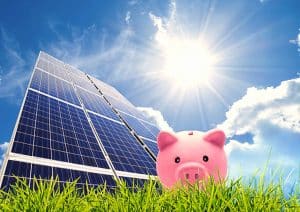Several media reports in the last week have stated that by making the switch to solar power, householders are losing their off-peak electricity benefits.
The installation of solar power isn’t the cause per se – and the loss of off-peak electricity rates won’t be confined to solar households in the near future. All Australian households will eventually lose off-peak rates as the nation moves to smart meters and time based metering.
The age of cheap energy is drawing to a close as Australia shifts away from polluting power generation to low carbon emissions sources. These sources will take the form of renewable energy, natural gas and the so-called concept of “clean coal”. At this point in time, these technologies are comparatively expensive compared to conventional slash and burn type methods of electricity production that have wreaked so much damage on the environment.
Australia’s aging electricity infrastructure is also buckling under the strain of demand and needs to be upgraded. The upgrades are expensive and the end consumer will pay for these changes in increased electricity charges – there is no escaping it.
Part of the infrastructure upgrades are smart meters. Victoria and New South Wales are already committed to rolling out smart meters to every residence and business. All other states and territories are trialing smart meters as part of their commitment to the Australian Government Department of Resources, Energy and Tourism and Ministerial Council on Energy national meter initiative.
The Victorian smart meter rollout has already commenced and is scheduled to be completed for all households & businesses by 2012. New South Wales will complete its rollout by 2017.
The choice of households to make the switch to solar power is simply seeing their switch to smart meters and consequently time-based metering happening sooner.
Renewable-energy ready, smart meters can also be read automatically over the network and can include a display that informs a consumer about their current rate of electricity use and its cost, updated every 30 minutes. Smart meter proponents say this increased availability of information in near real-time will allow for consumers to modify their consumption to save money.
However, the scare of potential loss of off-peak rates is now causing some consumers to think twice about installing solar power, preferring to wait until the inevitable happens.
According to co-founder of national solar solutions provider Energy Matters, Max Sylvester, it may not be a good reason to put a solar installation off.
“It really depends on the household’s specific situation. People should make enquiries with retailers as to what will happen if they decide to install solar power – it may be a non-issue with some companies. All it may require is a switch to an electricity retailer with more solar-friendly policies. Our staff may also be able to assist with this sort of information,” says Mr. Sylvester.
“Additionally, by putting off the decision to install solar, consumers may miss out on thousands of dollars in current incentives. For example, the Solar Credits rebate will be substantially reduced in the years ahead; we know that for certain – what we don’t know is other government rebate bombshells that may be dropped on us from out of the blue. We’ve had multiple instances of sudden negative rebate changes with little or no warning in the last 12 months.”
“There are also generous feed in tariff incentives available in some states at the moment and already there is talk in the ACT of reducing those incentives for new systems connected after June. By installing now, consumers can lock in those rates for nearly 20 years and likely well and truly offset any losses they may incur through not having access to off-peak rates.”
Aside from the financial aspect, Mr. Sylvester also flags a pressing issue – climate change and the environment.
“For environmentally conscious consumers, a decision to carry on in a business as usual fashion regarding their power may also entail a continued high level of household emissions; an issue that scientists tell us needs to be addressed now rather than later. An average sized solar power system of 1.5kW capacity has the potential to avoid up to 3 tonnes of carbon emissions a year compared to coal fired power generation.
“Support of the continued use of coal also means other environmental problems related to the mining and processing of the fossil fuel. Environmentally savvy consumers need to ask themselves – is all that damage really worth it to save what may be just a few dollars, if anything at all?”







































